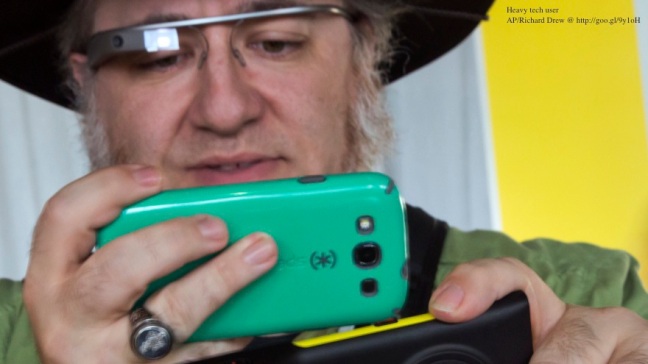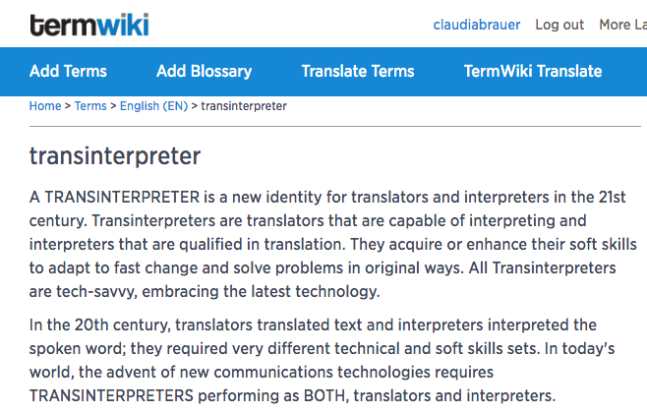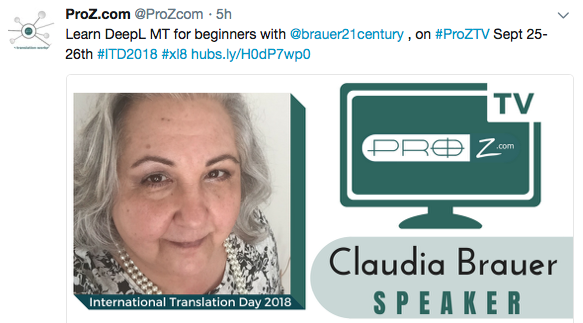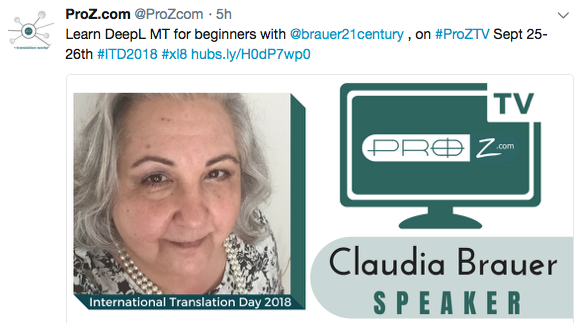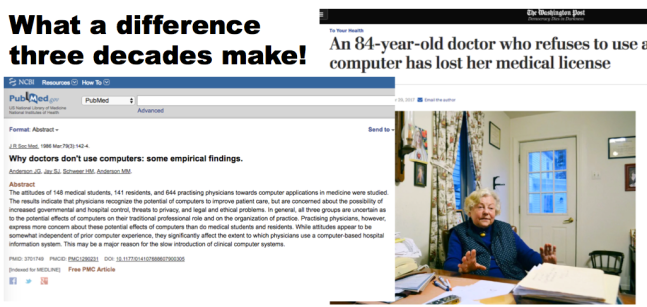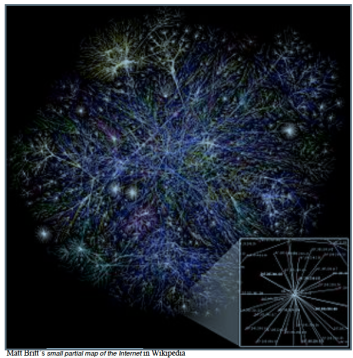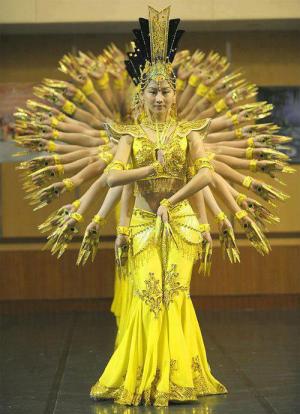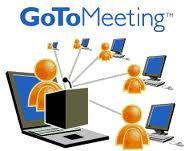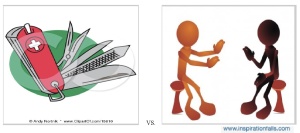On December 21, 2012, at 9am EST, I will be presenting a session to the members of the Certified PRO Network in ProZ.com, on yet another topic for professional translators and interpreters working in the Global Village of the 21st Century: professionalism, from the standpoint of codes of ethics and standards of practice. This time I will place the stress on behavior, rather than technical knowledge or abilities. We, translators and interpreters, must exhibit professionalism not only in terms of our technical knowledge or artistry but also, very important, in terms of the way we behave. This behavior is founded on two pillars – Codes of Ethics and Standards of Practice.
 footage.shutterstock.com
footage.shutterstock.com
But what is Ethics? Paraphrasing a recent study by the California Endowment, Ethic deals with the rules of conduct or expectations for what is considered appropriate or the right behavior with respect to oneself, others, and one’s environment. We try to find what the shared accepted principles of right and wrong are that govern the social group around us and which have become formalized. Ethical behavior therefore is a behavior that corresponds to the accepted and idealized principles expressing what is considered right and wrong, what we find acceptable or unacceptable.
The translation and interpreting industry has many Codes of Ethics and many Standards of Practice. There is no national or international consensus on what these codes of ethics or standards of practice should promote. Moreover, there are even differences in the definition of the terms among different users in different countries. There is an extensive overlap in content between different types of documents. They may be described as existing along a continuum from ethics to practice.
Lets talk about some core concepts that are common in virtually all codes of ethics and standards of
practice anywhere in the world:
Confidentiality—Accuracy and completeness—Impartiality Integrity—Best behavior
These are the topics we will be discussing in our Proz PRO session. In accordance with the MERRIAM WEBSTER dictionary, Professionalism is the skill, good judgment, and polite behavior that is expected from a person who is trained to do a job well.
Let me highlight the fact that Codes of Ethics and Standards of Practice promote your best behavior as a translator or interpreter. This best behavior includes preparing for your assignments and respecting the laws or requirements under which you carry out the assignment. If you have contact with the client or the client’s customers, you must be polite, courteous, and discreet as well as patient and even-‐tempered. I cannot stress this enough, especially if you are an interpreter and you will find very rude customers or LEPs or they may be in situations where they are rude to you. Just keep your calm and make sure they understand you are the interpreter and deserve respect, but without loosing your cool. The same goes for translators who have to deal with project managers and other individuals in language service providers.
In terms of best behavior, you should always try to stay in your roles but be flexible. Practice cultural competence at work. This is so important, because almost everything we do as translators and interpreters has deep roots in our ability to understand the cultural underpinnings of human communication and to understand and bridge the cultural differences that arise when individuals from different backgrounds try to form relationships or conduct business. It is up to us to ensure that we bridge that gap and become a conduit not only of ideas and concepts, but also of experiences, feelings and motivations.
Foster trust and mutual respect. Remember that many times the client’s business or even his or her life is in your hands. In your ability to appropriately convey the message needed. That trust and respect is quintessential to the role of the translator and interpreters. Just as with your doctor, if you do not trust your doctor, will you allow him or her to treat you?
ACCURACY & COMPLETENESS

avatier.com
Lets now talk about accuracy and completeness, or what we might call the competence level that any translator and interpreter should have. But what is accuracy? Basically it is defined as rendering your message in the target language with
- No additions and
- No omissions
- Favoring meaning over literalness
- And maintaining for each message its source Register + Style + Purpose + Spirit + Intention
It means that:
- You are expected to have a mastery of the target language equivalent to that of an educated native speaker,
- You are expected to have up-‐to-‐date knowledge of the subject material and its
- terminology in both languages
- You are expected to have access to information resources and reference materials,
- and knowledge of the tools of the profession,
- You must be able to carry out translating or interpreting tasks thoroughly and
- responsibly.
- and you should only accept jobs for which you are able to guarantee a proper standard of quality to their clients.
IMPARTIALITY

biocertindia.com
Codes of ethics also often talk about maintaining impartiality and keeping neutrality. Now then, Impartiality means treating all people and groups equally. So, regardless of what your personal beliefs are in regards to certain groups of people, as a translator or interpreter you should maintain impartiality when dealing with groups you would normally not engage in your daily activities. And that also entail avoiding discrimination and stereotyping. And if you are not able to do so because, for example, your personal religious beliefs, then you should withdraw from the assignment if you believe you might be biased in any way.
Impartiality also means the ability to exert no influence on parties and give no advice or insert no opinion. Interpreters sometimes step out of their role and become advocates, for example. But interpreter should NOT be advocates unless they are specifically requested to act as such or if not acting as an advocate would negatively impact the outcome of the encounter. In any other circumstance, the interpreter should hold their opinions to themselves and exert no influence on the parties.
The same applies to translators, where this influence may be more difficult to trade but veiled by the use of certain terms or the way in which the structure of the idea is presented, to stress this or that concept. Or by adding translators notes that reflect the translator’s opinions and not just clarifications to the meaning of text in context. Just like translators should keep translators notes to a minimum, so interpreters should avoid engaging in any side conversations.
INTEGRITY
 zazzle.com
zazzle.com
Codes of Ethics and Standards of Practice stress the translator and interpreter commitment to integrity.
The translator and the interpreter must honor their commitments and deadlines. Too often do we hear of translators that do not deliver their assignments on time or interpreters that fail to arrive on time. This is totally unacceptable. Translators and interpreters must work under a business model where a high priority is placed on meeting any commitment agreed with the client and fulfilling such obligations on schedule.
Another issue stressed by codes of ethics is to avoid malicious statements. This includes malicious statements not only about our clients but also about our colleagues, about our associations and about the profession in general. It is very easy nowadays in social media to express opinions that are harsh and many times unfounded or that might have a valid explanation if the other party was given the opportunity. Therefore, unless you are absolutely certain that it is the right thing to do, refrain from all sorts of malicious statements
We should avoid any conflicts of interest but if they appear, we should declare them to the client or withdraw from the assignment. A conflict of interest is a situation in which your decisions as a professional translator
Ethics mandate that you do not provide any services that are unnecessary and that you do not charge any additional fees to those actually required. This issue seems obvious but there are many translators and interpreters that will perform unnecessary services only because the client asked for them or did not specified that they would be unnecessary. Remember that many times your client is relying on you to tell them what they need translated or interpreted. Similarly, do not charge fees you have not incurred in. Avoid incurring in unfair practices or breaching the trust of your client, peers or the public in general.
Commitment to integrity also implies that there will be
- No false advertising or No self-promotion while on assignment.
- No referrals to third parties.
- And that you will accurately represent your qualifications.
Exercise due care with property. Now, other people’s property includes the documents you receive for translation, the films, CDs, and other forms of multimedia. The computers you use if they are not yours, the equipment to which you may have access. And if you are an interpreter, you will most probably be inside their property working with their equipment or having access to it. Have the greatest care with it.
For interpreters, dress in appropriate attire. I know this may sound basic but believe me, many times the interpreter forgets they are a professional. I live in Miami and have seen interpreters arrive at Immigration to represent a client in a hearing, and they have been wearing shorts or a t-shirt or, on the other hand, dressed so provocatively that the people in the room are distracted by the interpreter’s looks. So, beware of business dress code any time you have an assignment.
And finally, you should be constantly pursuing your professional development by being aware of the developments in the field and constantly learning more in your areas of specialty. Additionally, it is important that you have a membership in at least one professional association. Associations sponsor numerous events throughout the year that allow you to connect with your peers. You can participate and have the opportunity to learn about breaking news in your career, learn “best practices” or new ideas, and meet and brainstorm with others who are also looking to share and learn new information. You can use of their career and information resources.
CONFIDENTIALITY

ilbypasscoordinationproject.org
We have now seen how codes of ethics and standards of practice stress the need for accuracy and completeness, impartiality, integrity and your best professional and business behavior. Now lets tackle the issue of confidentiality, privacy and secrecy. You will handle huge numbers of documents and large amounts of information, most of it containing sensitive content and confidential information, at least from the client’s perspective.
For me personally, Confidentiality is a huge concern and a topic that I stress in all my training sessions.
Translators and interpreters have access to information that could be sensitive in many ways. So, one of our commitments must be to maintain confidentiality and disclose only what the client has agreed that we may or should disclose or that which we must disclose by law.
Confidentiality is a term that indicates preserving the privacy of the persons with whom you come in contact or the companies with whom you have any business relationship. This includes information gained verbally, in writing, from encounters, or by observation. All information is considered confidential when it pertains to medical care and client records, when it deals with most legal issues, and when it relates to financial data and business information. As a professional, at least 99% of anything you handle in life will fall into one of those categories and therefore you should treat it as confidential.
Let me repeat that in a different way. All translator and interpreters should ALWAYS act as if they had signed a strict confidentiality agreement for every single assignment they undertake, stating that they will abide by the strictest guidelines and principles of ethics, confidentiality, privacy and security. It does not matter if you are just translating a news release or a press article that has already been published.
Client confidentiality is the conscious effort to keep private all information revealed from the client while rendering services.
I would say that just like physicians have their Hippocratic oath, so translators and interpreters should have an oath to confidentiality and privacy. Such oath would say something like
I will do no cause harm and I will take no gain
with or from any information obtained from or on behalf of my client.
To ensure confidentiality means to have in place rules and protections to preserve the privacy of the persons, information or documents in your care (gained verbally, in print or electronic formats) and that you will keep them in strict confidence for use only by those specifically authorized by the owner of the information or document.
Remember that what we “share” may affect lives.
- WHAT do we “share”?
- With WHOM do we “share” it?
- HOW do we “share” it?
- Could this material cause “undesirable effects” if publicly available?
MINIMUM NECESSARY
ISO-17799 states that Minimum Necessary means “Ensuring that information is accessible only to those authorized to have access.” You are bound to know or disseminate the “minimum necessary” information to perform your job. This means that you should only access information at a minimum necessary level to be able to carry out your duties. The same applies to everyone else who might have access to the information under your care. Therefore, it is expected that you make reasonable efforts to limit confidential information to the minimum necessary to accomplish the intended purpose.
 proz.com
proz.com
Excerpts from Claudia Brauer’s presentation to the Certified PRO Network:
Dec 21, 2012 13:00 – 18:00 GMT (9 a.m. EST)
http://www.proz.com/virtual-conferences/434/program
Professionalism: code of ethics, standards of practice, commitment to privacy and confidentiality





